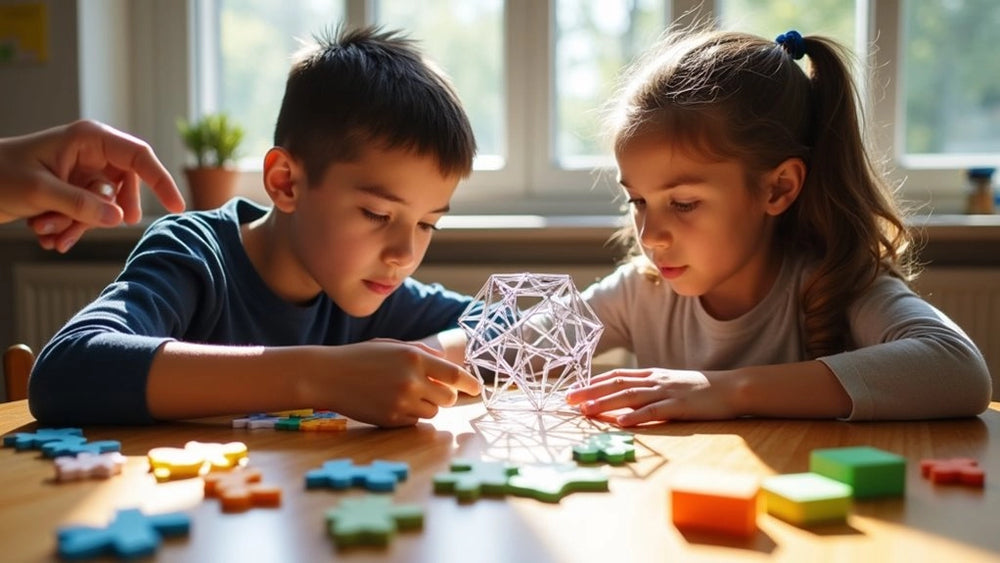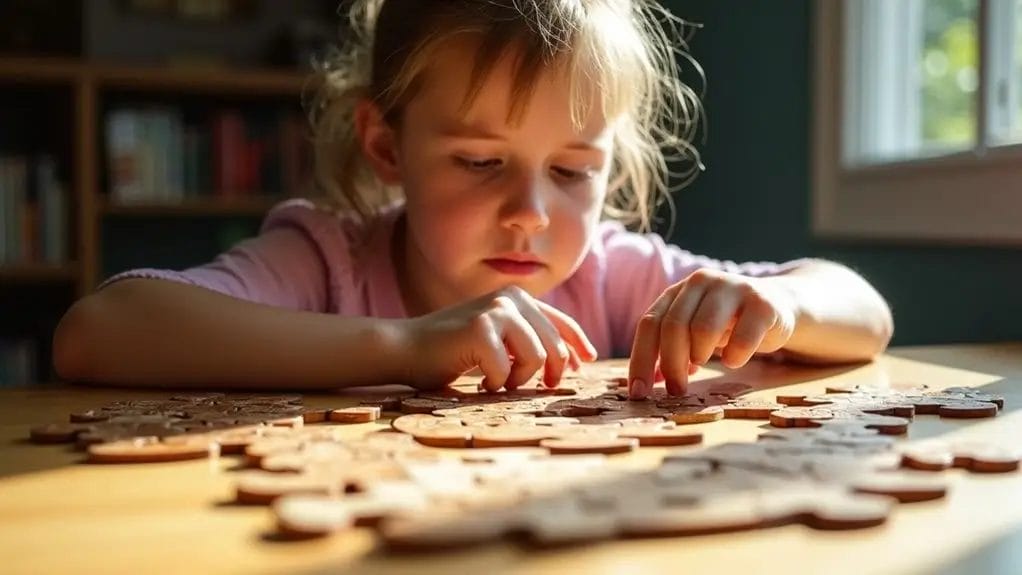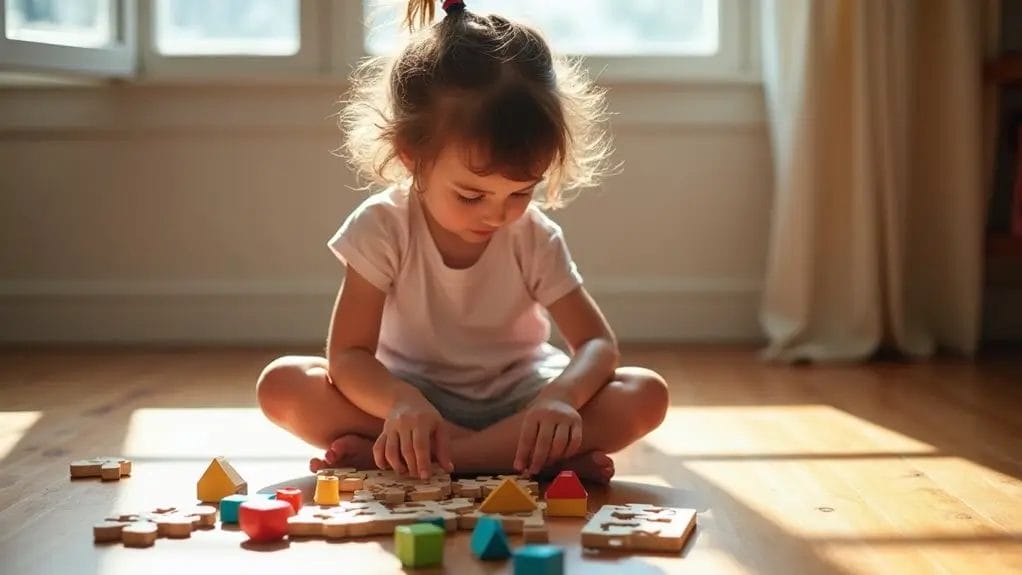
What Is the Educational Value of Puzzles? Lasting Benefits of Puzzles
Puzzles are a familiar part of our lives. They evolve from the simple jigsaw pieces we played with as children to the intricate brain teasers we tackle as adults.
Beyond mere entertainment, these engaging challenges serve as powerful educational tools. They can significantly enhance how we learn and think.
It's important for parents, educators, and lifelong learners alike to recognize the educational benefits of puzzles. This understanding can unlock the potential for fostering cognitive development. Puzzles also help build essential skills in surprising ways.
Key Takeaways
- Puzzles enhance critical thinking and problem-solving skills. They require systematic analysis and strategic approaches to challenges.
- Regular puzzle engagement improves memory, concentration, and spatial awareness. Piece manipulation also develops fine motor skills.
- Students learn patience, perseverance, and emotional regulation while experiencing satisfaction and dopamine release upon puzzle completion.
- Collaborative puzzle-solving activities foster teamwork, communication skills, and social development.
- Puzzles integrate effectively across subjects, supporting vocabulary development, geometric understanding, and logical reasoning in classroom environments.
Introduction to Puzzles and Their Popularity

Puzzles are taking center stage in today's education system. Teachers recognize their unique ability to blend learning with enjoyment.
The Rise of Puzzles in Modern Education
Traditional teaching methods continue to evolve. But puzzles have emerged as powerful educational tools in modern classrooms.
Puzzles improve learning by building important skills that help students in different subjects. When your child works on puzzles, they enhance their problem-solving, spatial awareness, and fine motor skills.
You can observe how puzzles promote teamwork. Students collaborate to find solutions, improving their communication and social skills.
Today's educators recognize puzzles as versatile resources. Because puzzles can adapt to different age groups and learning objectives. They're invaluable for interactive, hands-on education in modern learning environments.
Types of Puzzles Used in Learning
There are diverse educational puzzles designed to meet specific learning objectives.
- Traditional jigsaw puzzles enhance spatial awareness.
- Shape-sorting activities develop problem-solving skills.
- Block puzzles help children develop an understanding of geometric relationships.
- Sequencing puzzles build logical thinking abilities.
Each puzzle type serves a unique purpose in cognitive development. They're all invaluable classroom resources.
What Is the Educational Value of Puzzles for Children?

When you engage with puzzles regularly, you'll strengthen many cognitive benefits.
Enhance Problem Solving
Through regular engagement with puzzles, children improve essential problem-solving abilities. When you introduce puzzles to children, you're helping them build critical thinking skills. They learn to analyze shapes, patterns, and connections.
They'll learn to tackle challenges step by step, trying different strategies until they find what works.
As children tackle increasingly complex puzzles, they naturally develop perseverance and mental flexibility. They'll become more confident in problem-solving and learn to overcome frustrations.
Boost Memory and Concentration
Regular puzzle-solving activities sharpen memory and concentration skills. Kids who engage with puzzles develop stronger visualization abilities and memory recall. They learn to remember different pieces' shapes, colors, and patterns.
Your kids will improve their concentration skills. This is because puzzles require sustained attention to complete successfully. The repetitive nature of solving puzzles helps boost memory by encouraging them to remember past strategies and attempts.
Improve Spatial Awareness and Motor Skills
Many toys offer educational benefits for child development. But puzzles stand out as powerful tools. They enhance children's spatial awareness and motor skills.
When your child works with puzzles, they learn to visualize how shapes relate to one another in space. This will strengthen their spatial awareness naturally through play.
Your child's fine motor skills improve as they grasp, turn, and fit pieces together.
Puzzles in early childhood develop gross motor skills as toddlers reach and move their whole bodies with floor puzzles. This combination of physical coordination and visual processing creates a comprehensive learning experience. It helps build essential skills needed for future academic success.
Encourage Patience and Perseverance
When your child works through challenging puzzle pieces, they learn the value of persistence and building resilience.
Puzzles teach your child to stay focused and patient, even when pieces don't fit right away. This process of trial and error strengthens their ability to handle setbacks.
Each successful completion boosts their confidence. Additionally, it reinforces the understanding that effort leads to achievement.
Through puzzle play, students will develop a growth mindset. This mindset embraces challenges instead of avoiding them.
Develop Social Interaction and Teamwork
Have you ever noticed how children light up when solving puzzles together? Group puzzle activities help develop essential social skills and teamwork abilities. Children learn to communicate their ideas effectively. They listen to other's suggestions and work towards a common goal.
They also practice turn-taking, develop patience, and learn to resolve conflicts constructively. They build empathy by supporting peers who might struggle with certain pieces.
These collaborative moments boost their self-esteem as they celebrate achievements together. This will foster a sense of belonging and accomplishment.
How Do Puzzles Benefit Adult Learning?
Puzzles offer remarkable benefits for adult learning, too. They keep your mind sharp and create an effective outlet for stress relief.
Lifelong Learning and Cognitive Health
Many people associate puzzles with childhood development. But they also play an important role in maintaining mental acuity throughout adulthood.
When you regularly engage with puzzles, you actively protect your brain health. This practice also enhances cognitive skills that are essential for lifelong learning.
Your problem-solving abilities improve as you tackle different types of puzzles. This helps you adapt to new challenges in both personal and professional settings.
You'll notice enhanced spatial awareness, better visual perception, and sharper strategic thinking.
Stress Relief and Mental Well-Being
Puzzles are also helpful for stress management and emotional well-being in adults.
When you engage in puzzle-solving activities, you'll experience reduced stress levels. Your mind focuses on the task at hand, offering a welcome escape from daily worries.
You'll notice improved mental well-being through the release of dopamine. Dopamine creates feelings of pleasure and satisfaction upon completing a puzzle.
Whether working alone or with others, puzzles promote mindfulness and social connection. They help you stay emotionally balanced. This meditative activity provides a natural way to regulate emotions and combat anxiety.
Practical Applications of Puzzles in Education
When you look at today's classrooms, you'll see puzzles being woven into various subjects.
Integrate Puzzles into Curricula
Teachers can enhance their curriculum by strategically incorporating puzzles into daily lessons. Puzzles help children engage in hands-on learning while developing essential skills.
Integrating puzzle activities strengthens students' fine motor abilities and hand-eye coordination. When incorporating puzzles into math lessons, teachers help students grasp patterns, sequencing, and spatial relationships.
They're also excellent tools for building vocabulary and practicing communication. Implementing collaborative puzzle solving will foster teamwork and social skills. Meanwhile, students learn patience and perseverance through shared problem-solving experiences.
Puzzle-Based Learning Environments
Creating effective puzzle-based learning environments requires thoughtful organization. It also involves the purposeful implementation of various puzzle types.
Well-designed puzzle-solving stations encourage students to develop critical thinking and problem-solving skills. Incorporating collaborative learning opportunities fosters communication and teamwork. This occurs as students work together to complete challenging puzzles.
Set up dedicated areas for spatial reasoning activities and geometric puzzles. This will enhance visual-spatial skills. Include fine motor skill stations where students can practice manipulation. They will also help develop hand-eye coordination.
Case Studies of Successful Implementation
You'll find interesting evidence in preschools. Puzzles help young children develop fine motor skills and problem-solving abilities.
Elementary classrooms report enhanced teamwork when students tackle puzzles together. Meanwhile, special education programs show marked improvements in social interaction and emotional control.
Math teachers have successfully integrated puzzles to strengthen students' understanding of numerical concepts. This approach has led to improved test scores.
The data consistently shows that incorporating puzzles into learning environments helps students gain essential cognitive, social, and practical skills.
Conclusion
Puzzles are valuable educational tools that boost cognitive abilities and make learning fun. Puzzles help students improve problem-solving skills, and adults keep their minds sharp. They benefit everyone.
Including puzzles in your learning routine supports mental growth, creativity, and long-term brain health. Start challenging yourself today to enjoy the educational rewards.
FAQs
What Are the Educational Value of Puzzles?
Through puzzles, you'll develop critical thinking, fine motor skills, and social abilities. They'll boost problem-solving skills, enhance spatial awareness, and build confidence. Plus, they teach patience and perseverance during collaborative learning experiences.
What Is the Learning Outcome of Puzzles?
You'll develop critical thinking, problem-solving skills, and enhanced motor coordination. These skills will also boost your confidence, patience, and social abilities. During interactive learning experiences, they’ll also improve your memory and spatial awareness.
What Are the Benefits of Playing Puzzles?
You'll develop critical thinking, improve motor skills, and boost memory. Puzzles will enhance problem-solving abilities, build confidence, and strengthen social skills.